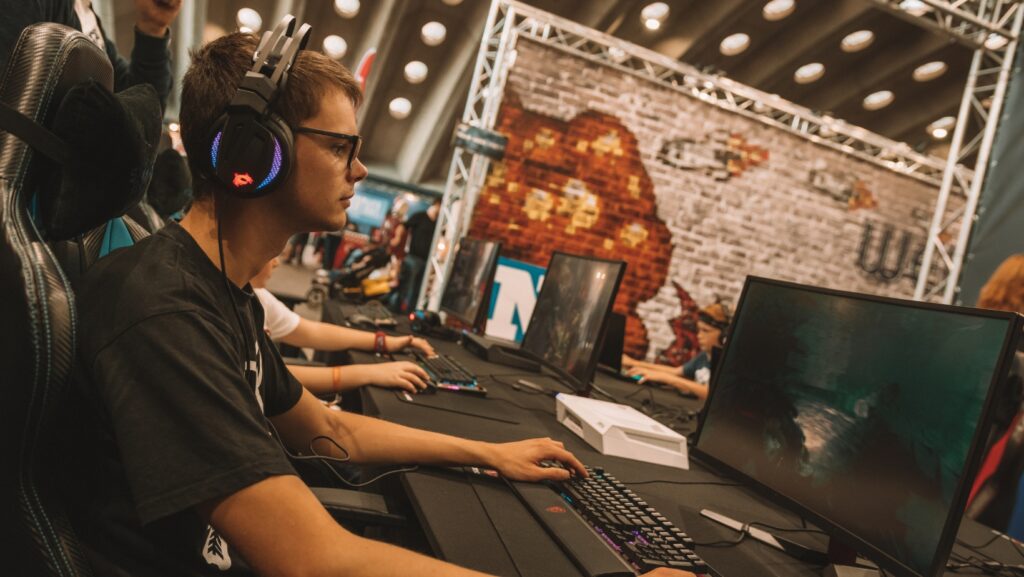Competitive gaming has evolved significantly in the last decade, and many students are turning their hobby into a career path. From casual games to tournaments, learners have shown that gaming isn’t just a hobby – it can be a career. Here are some uplifting success stories of education recipients who succeeded in the gaming industry.
The Rise of Professional Gaming
Sponsorships, streaming, and big tournaments mean that students can turn their passion for gaming into a career now. The abilities acquired through gaming, including strategic thinking, working in a group, and quickly thinking on your feet, are increasingly sought after in this emerging industry. More young people are competing for prize pools, streaming their gameplay to the world, and getting sponsors from big brands. These stories are uplifting and show the dedication and sacrifice it takes to make it in the professional gaming scene.
Balancing academic responsibilities with training can be challenging for youngsters aspiring to become professional gamers. When you can’t manage your coursework, hire a professional research paper writer to complete assignments on time. With expert support, you don’t fall behind in your studies while pursuing your passion for gaming.
Popular Success Stories
1. Ninja (Tyler Blevins)
Tyler Blevins (aka Ninja) is one of his generation’s most successful professional gamers. From the beginning, in competitive games like “Halo,” Ninja made massive waves when he switched to “Fortnite.” As a student, Blevins spent many hours working on his games, and the effort was rewarded as one of the world’s highest-paid gamers. Today, Ninja is a professional gamer, streamer, and influencer working for giants such as Red Bull and Adidas. His story is a testament to how passionate and persistent young people can make a career in gaming.
2. Faker (Sang-hyeok Lee)
Sang-hyeok Lee (aka Faker) is an all-time “League of Legends” hero. Faker proved a talent from a very early age and soon made his way to the top of the ranks.

His success at tournaments, especially at the League of Legends World Championships, has made him an international star and a respected person. As a student, Faker’s passion for the game and his capacity to grow and change continually distinguished him. His success is the epitome of what’s possible for students if they are prepared and driven to enter the world of professional gaming.
3. Shroud (Michael Grzesiek)
Michael Grzesiek, aka Shroud, transitioned from a professional “Counter-Strike: Global Offensive” (CS: GO) player to one of the world’s most followed streamers. Shroud’s success was a combination of all manners, high-quality talent, and connection to the audience. Shroud was once a student seeking a way to share his passion for games, and his story is a testament to the fact that if you are a learner with persistence and a desire to get better, you can do well in gaming. He is now a popular figure in esports and streaming circles.
4. PewDiePie (Felix Kjellberg)
PewDiePie, or Felix Kjellberg, is among the biggest names in games and online entertainment. Although he wasn’t a professional gamer, he began his fame as a student who liked playing games on YouTube. PewDiePie gradually built a personality that millions of people wanted, and he became YouTube’s most-subscribed individual creator. He made money doing entertaining gameplay videos and commentary, proving that it is just as possible for students to create a successful career by creating content and sharing their gaming experience.
The Skills Students Learn from Gaming
Not only are the success tales of these professional gamers motivational, but they’re also testimony to what students can learn through games.

These include:
- Strategic Thinking: Many games require players to think strategically, anticipate, and be devious. This ability is valuable not only in games but also in academia and on the job.
- Collaboration: Almost all multiplayer games (even esports games) involve teamwork to achieve a shared objective. These games allow education recipients to learn how to communicate and collaborate and critical skills in professional contexts.
- Time Management: Competitive gaming requires practice, like every other sport or skill. Gamers who take gaming seriously also tend to learn to manage their time as school and gaming activities combine.
- Resilience: Gameplay constantly changes, and the best gamers have to be able to adjust to new strategies, mechanics, and updates. This flexibility is something you can apply to every other dimension of life.
The Future of Gaming Careers
The stories of student pro gamers tell us that esports and gaming have more possibilities than ever. Learners can turn their gaming obsession into a fulfilling and profitable profession by gaming competitively, content, or streaming games. New opportunities have emerged due to esports, and today, with enough commitment, talent, and a little luck, students can join the ranks of game giants such as Ninja, Faker, and Shroud. The gaming landscape changes constantly, and there’s no end to the possibilities for education recipients who love games.

